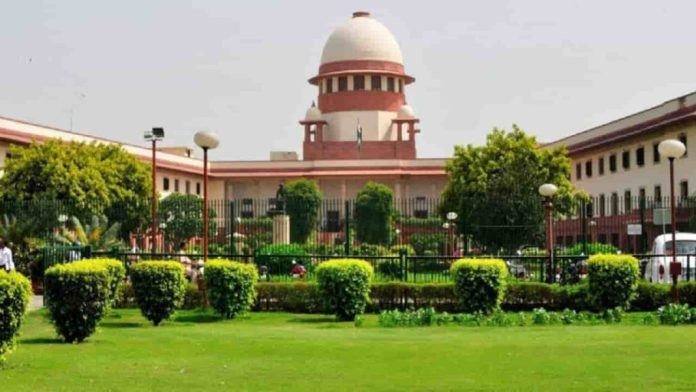The Supreme Court on Friday directed Bharat Rashtra Samithi (BRS) leader K Kavitha, who was arrested last week by the Enforcement Directorate for her alleged involvement in the Delhi Excise Policy case, to approach the trial court for bail.
The order was passed by a Special Bench of Justice Sanjiv Khanna, Justice MM Sundresh and Justice Bela Trivedi on a bail petition of the BRS leader.
Appearing for Kavitha, Senior Advocate Kapil Sibal requested the Bench not to ask him to go back to the High Court. He asked the Apex Court to look into what was happening in the country. He argued that all the statements made so far in the case were of approvers.
Telling the Senior Counsel not to get emotional, the Bench directed him to go through the trial court for bail. The Bench noted that relief cannot be granted to the petitioner only because she was a political person.
It further observed that it was hearing the Vijay Madanlal challenge o the Prevention of Money Laundering Act (PMLA) as fair as the bail was concerned.
The national agency arrested Kavitha last week on allegations that she conspired with top leaders of the Aam Aadmi Party (AAP), including its national convenor and Delhi Chief Minister Arvind Kejriwal, over formulation of a favourable liquor policy.
Earlier on March 16, Special judge MK Nagpal of Rouse Avenue Courts had sent the Bharat Rashtra Samithi leader to the Enforcement Directorate (ED) custody till March 23 in connection with the Delhi Liquor Policy scam case.
ED sought a 10-day remand of the accused in the money laundering case.
The Telangana Legislative Council member called her arrest illegal and said that she will fight it in court.
Appearing for Kavitha, Senior Advocate Vikram Chaudhary submitted that the arrest was a ‘blatant’ abuse of power and authority.
He alleged that ED violated its oral assurance or undertaking given to the Supreme Court in September last year that the Central probe agency will not summon Kavitha till the next date of hearing in her plea against summons.
He said the entire action of ED was wrong.
Calling it a vexatious arrest, Chaudhary said that ED had withdrawn its oral undertaking, which was not recorded in the order by the Apex Court.
He argued that an undertaking given to the court, which was not explicitly recorded because the lawyers believed that the status of each of the counsels was par higher and the statement was good enough, has been withdrawn.
The Counsel asked the ED what prevented it from waiting for three days and getting an order from the Supreme Court.
He alleged that the agency wanted to overreach the Apex Court. The basic courtesy demanded that ED get a clarification. However, it became the judge, jury, and the executioner, which was the worst thing.
Appearing for the national agency, Special Counsel Zoheb Hossain contended that no statement was given to any court, including the Supreme Court, that the probe agency will not take any coercive action.
He said the petitioner had filed two distinct prayers. One for quashing of summons and another seeking no coercive action. No statement was ever made that there will be no coercive action. The statement made in September was that whenever the ED was going to issue summons, it would issue the same after 10 days. He told Chaudhary not to go exclusively by newspaper reports.
Since newspaper reports could not be reliable sources to show as to what transpired in a court hearing and when there was no explicit judicial order, the petitioner could not presume an interim relief in her favour, argued Hossain.
He requested the Apex Court to test whether the requirements under Section 19 of the Prevention of Money Laundering Act (PMLA) were fulfilled in the absence of any written order.
Admitting that no coercive action was sought in the prayers, he said there was no order granting no coercive action in the favour of the accused.
Hossain said that an undertaking could not be stretched beyond what it was. There was no breach of any undertaking given to the Supreme Court, he added.
He further submitted that ED had reliable statements of individuals to prove the role of the accused in receiving kickbacks and that the probe agency was going to summon those persons for confrontation with the BRS leader.


